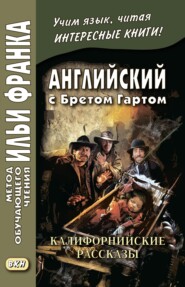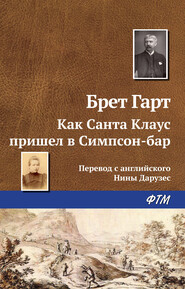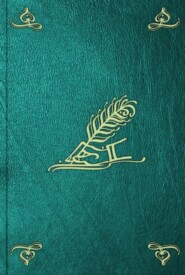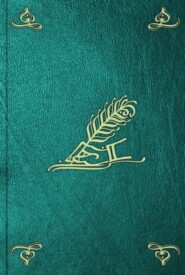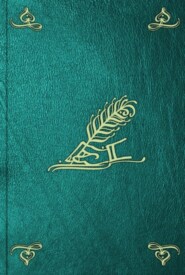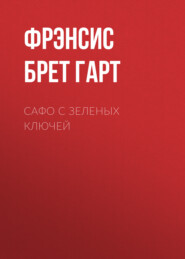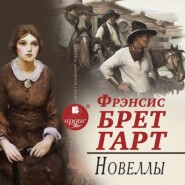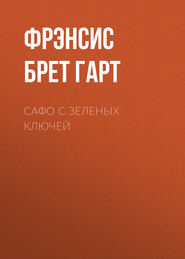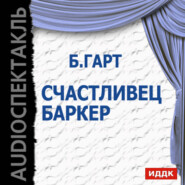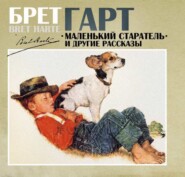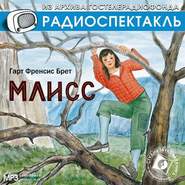По всем вопросам обращайтесь на: info@litportal.ru
(©) 2003-2024.
✖
Gabriel Conroy
Автор
Год написания книги
2017
Настройки чтения
Размер шрифта
Высота строк
Поля
"If this enthusiastic naturalist is still living, I hope he'll keep away from the men for some hours," said the surgeon to Blunt, privately.
"Who is he?" asked the other.
"A foreigner – a savant of some note, I should say, in his own country. I think I have heard the name before – 'Devarges,'" replied the surgeon, looking over some papers that he had picked up. "He speaks of some surprising discoveries he has made, and evidently valued his collection very highly."
"Are they worth re-collecting and preserving?" asked Blunt.
"Not now!" said the surgeon. "Every moment is precious. Humanity first, science afterward," he added lightly, and they rode on.
And so the papers and collections preserved with such care, the evidence of many months of patient study, privation, and hardship, the records of triumph and discovery were left lying upon the snow. The wind came down the flanks of the mountain and tossed them hither and thither as if in scorn, and the sun, already fervid, heating the metallic surfaces of the box and portfolio, sank them deeper in the snow, as if to bury them from the sight for ever.
By skirting the edge of the valley where the snow had fallen away from the mountain-side, they reached in a few hours the blazed tree at the entrance of the fateful cañon. The placard was still there, but the wooden hand that once pointed in the direction of the buried huts had, through some mischance of wind or weather, dropped slightly, and was ominously pointing to the snow below. This was still so deep in drifts that the party were obliged to leave their horses and enter the cañon a-foot. Almost unconsciously, this was done in perfect silence, walking in single file, occasionally climbing up the sides of the cañon where the rocks offered a better foothold than the damp snow, until they reached a wooden chimney and part of a roof that now reared itself above the snow. Here they paused and looked at each other. The leader approached the chimney, and leaning over it called within.
There was no response. Presently, however, the cañon took up the shout and repeated it, and then there was a silence broken only by the falling of an icicle from a rock, or a snow slide from the hill above. Then all was quiet again, until Blunt, after a moment's hesitation, walked around to the opening and descended into the hut. He had scarcely disappeared, as it seemed, before he returned, looking very white and grave, and beckoned to the surgeon. He instantly followed. After a little, the rest of the party, one after another, went down. They stayed some time, and then came slowly to the surface bearing three dead bodies. They returned again quickly, and then brought up the dissevered members of a fourth. This done they looked at each other in silence.
"There should be another cabin here," said Blunt after a pause.
"Here it is!" said one of the men, pointing to the chimney of the second hut.
There was no preliminary "hallo!" or hesitation now. The worst was known. They all passed rapidly to the opening, and disappeared within. When they returned to the surface they huddled together – a whispering but excited group. They were so much preoccupied that they did not see that their party was suddenly increased by the presence of a stranger.
CHAPTER VIII.
THE FOOTPRINTS GROW FAINTER
It was Philip Ashley! Philip Ashley – faded, travel-worn, hollow-eyed, but nervously energetic and eager. Philip, who four days before had left Grace the guest of a hospitable trapper's half-breed family in the California Valley. Philip – gloomy, discontented, hateful of the quest he had undertaken, but still fulfilling his promise to Grace and the savage dictates of his own conscience. It was Philip Ashley, who now standing beside the hut, turned half-cynically, half-indifferently toward the party.
The surgeon was first to discover him. He darted forward with a cry of recognition, "Poinsett! Arthur! – what are you doing here?"
Ashley's face flushed crimson at the sight of the stranger. "Hush!" he said almost involuntarily. He glanced rapidly around the group, and then in some embarrassment replied with awkward literalness, "I left my horse with the others at the entrance of the cañon."
"I see," said the surgeon briskly, "you have come with relief like ourselves; but you are too late! too late!"
"Too late!" echoed Ashley.
"Yes, they are all dead or gone!"
A singular expression crossed Ashley's face. It was unnoticed by the surgeon, who was whispering to Blunt. Presently he came forward.
"Captain Blunt, this is Lieutenant Poinsett of the Fifth Infantry, an old messmate mine, whom I have not met before for two years. He is here, like ourselves, on an errand of mercy. It is like him!"
The unmistakable air of high breeding and intelligence which distinguished Philip always, and the cordial endorsement of the young surgeon, prepossessed the party instantly in his favour. With that recognition, something of his singular embarrassment dropped away.
"Who are those people?" he ventured at last to say.
"Their names are on this paper, which we found nailed to a tree. Of course, with no survivor present, we are unable to identify them all. The hut occupied by Dr. Devarges, whose body, buried in the snow, we have identified by his clothing, and the young girl Grace Conroy and her child-sister, are the only ones we are positive about."
Philip looked at the doctor.
"How have you identified the young girl?"
"By her clothing, which was marked."
Philip remembered that Grace had changed her clothes for the suit of a younger brother who was dead.
"Only by that?" he asked.
"No. Dr. Devarges in his papers gives the names of the occupants of the hut. We have accounted for all but her brother, and a fellow by the name of Ashley."
"How do you account for them?" asked Philip with a dark face.
"Ran away! What can you expect from that class of people?" said the surgeon with a contemptuous shrug.
"What class?" asked Philip almost savagely.
"My dear boy," said the surgeon, "you know them as well as I. Didn't they always pass the Fort where we were stationed? Didn't they beg what they could, and steal what they otherwise couldn't get, and then report to Washington the incompetency of the military? Weren't they always getting up rows with the Indians and then sneaking away to let us settle the bill? Don't you remember them – the men gaunt, sickly, vulgar, low-toned; the women dirty, snuffy, prematurely old and prematurely prolific?"
Philip tried to combat this picture with his recollection of Grace's youthful features, but somehow failed. Within the last half-hour his instinctive fastidiousness had increased a hundredfold. He looked at the doctor, and said "Yes."
"Of course," said the surgeon. "It was the old lot. What could you expect? People who could be strong only in proportion to their physical strength, and losing everything with the loss of that? There have been selfishness, cruelty – God knows – perhaps murder done here!"
"Yes, yes," said Philip, hastily; "but you were speaking of this girl, Grace Conroy; what do you know of her?"
"Nothing, except that she was found lying there dead with her name on her clothes and her sister's blanket in her arms, as if the wretches had stolen the dying child from the dead girl's arms. But you, Arthur, how chanced you to be here in this vicinity? Are you stationed here?"
"No, I have resigned from the army."
"Good! and you are here" —
"Alone!"
"Come, we will talk this over as we return. You will help me make out my report. This you know, is an official inquiry, based upon the alleged clairvoyant quality of our friend Blunt. I must say we have established that fact, if we have been able to do nothing more."
The surgeon then lightly sketched an account of the expedition, from its inception in a dream of Blunt (who was distinctly impressed with the fact that a number of emigrants were perishing from hunger in the Sierras) to his meeting with Philip, with such deftness of cynical humour and playful satire – qualities that had lightened the weariness of the mess-table of Fort Bobadil – that the young men were both presently laughing. Two or three of the party who had been engaged in laying out the unburied bodies, and talking in whispers, hearing these fine gentlemen make light of the calamity in well-chosen epithets, were somewhat ashamed of their own awe, and less elegantly, and I fear less grammatically, began to be jocose too. Whereat the fastidious Philip frowned, the surgeon laughed, and the two friends returned to the entrance of the cañon, and thence rode out of the valley together.
Philip's reticence regarding his own immediate past was too characteristic to excite any suspicion or surprise in the mind of his friend. In truth, the doctor was too well pleased with his presence, and the undoubted support which he should have in Philip's sympathetic tastes and congenial habits, to think of much else. He was proud of his friend – proud of the impression he had made among the rude unlettered men with whom he was forced by the conditions of frontier democracy to associate on terms of equality. And Philip, though young, was accustomed to have his friends proud of him. Indeed, he always felt some complacency with himself that he seldom took advantage of this fact. Satisfied that he might have confided to the doctor the truth of his connection with the ill-fated party and his flight with Grace, and that the doctor would probably have regarded him as a hero, he felt less compunction at his suppression of the fact.
Their way lay by Monument Point and the dismantled cairn. Philip had already passed it on his way to the cañon, and had felt a thankfulness for the unexpected tragedy that had, as he believed, conscientiously relieved him of a duty to the departed naturalist, yet he could not forego a question.
"Is there anything among these papers and collections worth our preserving?" he asked the surgeon.
The doctor, who had not for many months had an opportunity to air his general scepticism, was nothing if not derogatory.
"No," he answered, shortly. "If there were any way that we might restore them to the living Dr. Devarges, they might minister to his vanity, and please the poor fellow. I see nothing in them that should make them worthy to survive him."
The tone was so like Dr. Devarges' own manner, as Philip remembered it, that he smiled grimly and felt relieved. When they reached the spot Nature seemed to have already taken the same cynical view; the metallic case was already deeply sunken in the snow, the wind had scattered the papers far and wide, and even the cairn itself had tumbled into a shapeless, meaningless ruin.
CHAPTER IX.







